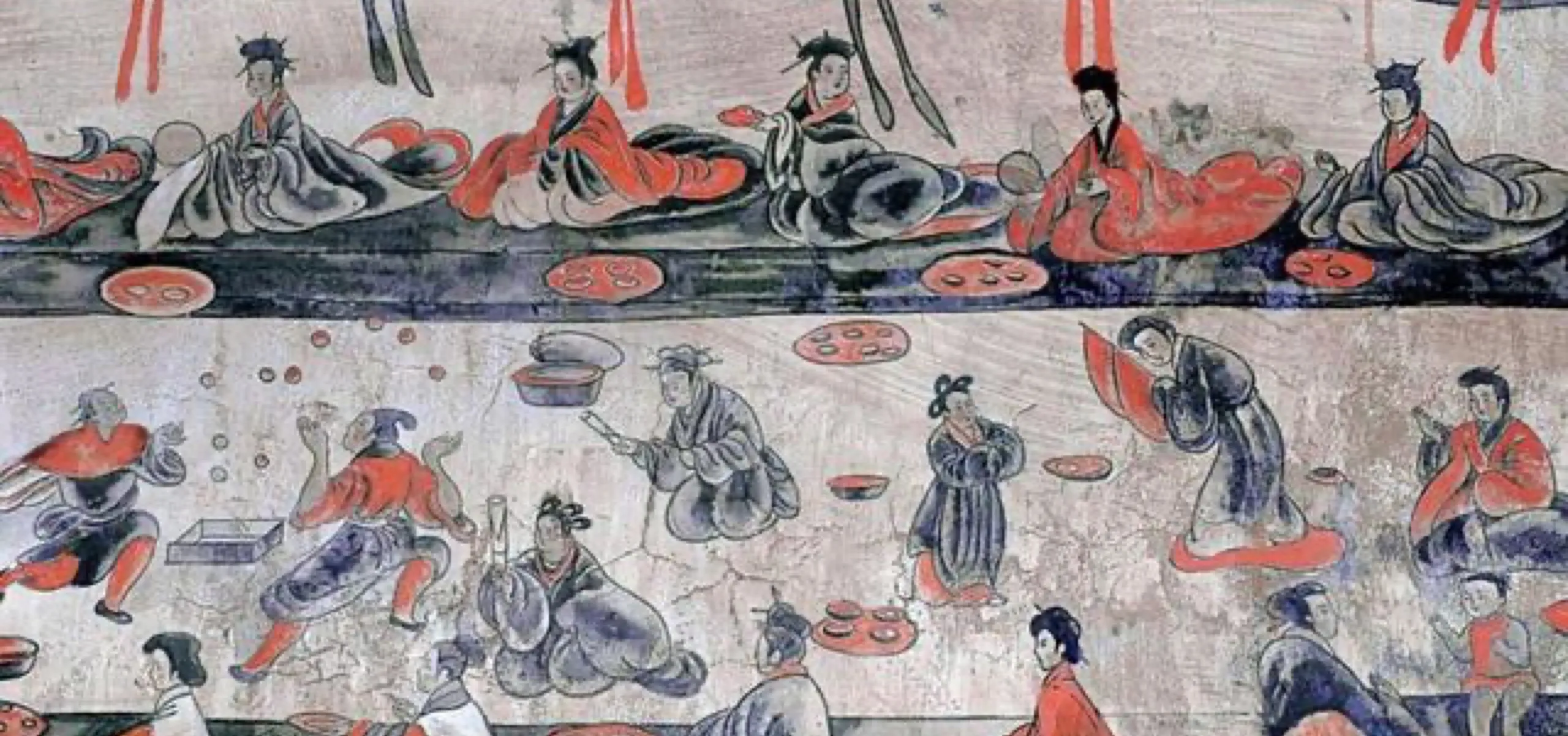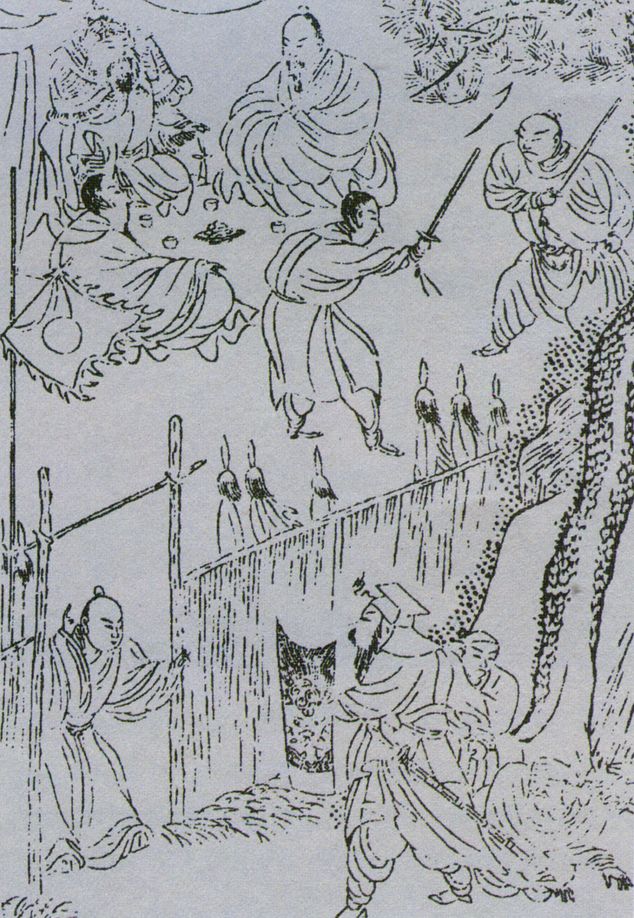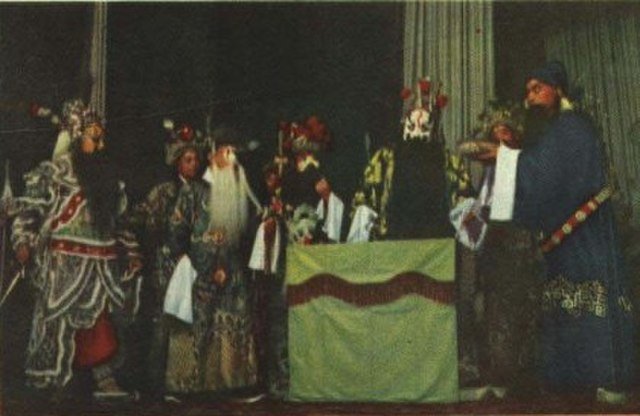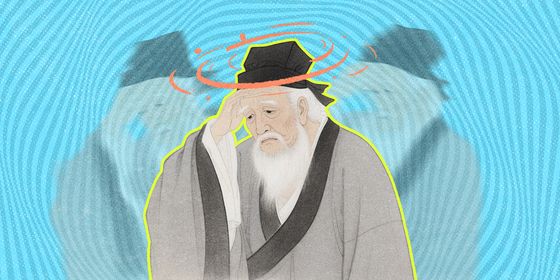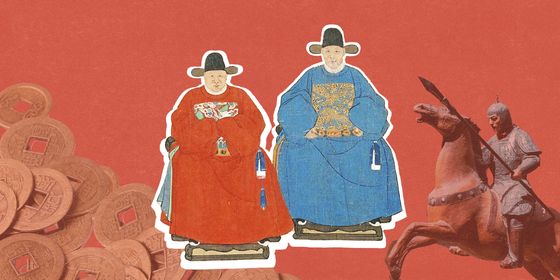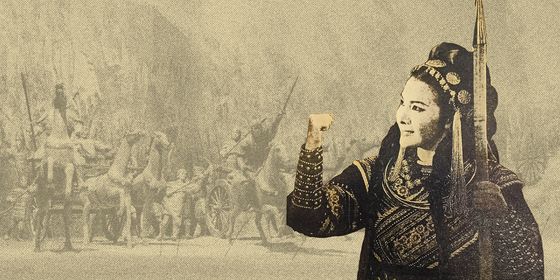Ancient feasts were venues of political intrigue, murder, and even cannibalism
Mao Zedong may have famously written that “revolution is not a dinner party,” but banquets and feasts have nonetheless been at the center of many significant moments in Chinese ancient history. For centuries, nobles and warlords settled feuds and conducted diplomacy over lavish dinners featuring copious drinking, sword dances, and assassination attempts.
These feasts and parties were known as 筵席 (yánxí), with 筵 referring to a large mat spread on the ground, and 席 meaning a small cushion usually woven from bamboo. Though feasts are now conducted at a dining table, the term has remained.
Wedding banquets saw guests eat “couple’s chicken (鸳鸯鸡 yuānyāngjī),” a dish of two steamed chicken served on the same plate, while birthday feasts often featured “longevity fish (长寿鱼, orange roughy),” which can live decades, and “longevity noodles (长寿面 chángshòumiàn)” to symbolize hopes for the host’s long life.
Here are three of ancient China’s most famous banquets, each full of conspiracy, murder, and political intrigue:
Hongmen Banquet 鸿门宴
Perhaps the most famous of all Chinese dinner parties is the Hongmen Banquet, which is recorded in detail in the Records of the Grand Historian (《史记》), a history of ancient China by Han dynasty (206 BCE – 220 CE) scholar Sima Qian (司马迁). It took place in 206 BCE at Hongmen Gate, outside Xianyang, the capital of the Qin dynasty (221 – 206 BCE). At the time, Liu Bang (刘邦) and Xiang Yu (项羽) were the leaders of the two strongest rebel armies in the country, and they met each other across a vast spread of dishes.
But the feast is not famous for the menu, but for multiple plots by Xiang to kill Liu, and the latter’s eventual escape. Liu had conquered Xianyang, and the last Qin emperor, Ziying (子婴), had surrendered to him. But Xiang and his much more powerful army followed hot on Liu’s heels. Hearing Liu was planning to declare himself King of Guanzhong, Xiang’s advisor Fan Zeng (范增) urged Xiang to assassinate Liu, believing he had become a dangerous threat.
The next day, Xiang invited Liu to a banquet. Liu, whose army was outnumbered four-to-one, felt he had to accept, taking a personal force of just 100 men with him. When they met, Liu acted as humbly as possible, and even took a seat facing north, leaving the south-facing place to Xiang—according Qin custom, the south-facing seat was reserved for the emperor.
Xiang hesitated in his plot to kill Liu, but his adviser Fan took matters into his own hands, hiring a sword dance entertainer to kill Liu during his performance. But Xiang’s uncle Xiang Bo (项伯), who had a close relationship with Liu, suspected a trap and jumped to Liu’s aide, blocking each of the attempted sword attacks during the “dance.”
Suspecting Liu was in danger, Liu’s general Fan Kuai (樊哙) burst into the banquet, dressed in a full suit of armor and armed with his sword. He interrupted the sword dance, and glared furiously at Xiang Yu. Xiang Yu was impressed by Fan Kuai’s bravery, and offered him a goblet of wine, which he promptly gulped down, then a piece of meat, which Fan placed on his shield and cut with his sword before eating. Fan then gave a speech about Liu Bang’s achievements, and how it would be unjust for Xiang Yu to have him killed.
Later, Liu, accompanied by General Fan, left the banquet room to use the toilet. Liu wanted to return, but Fan urged him to escape as soon as possible. Liu mounted a horse, and galloped off.
Xiang Yu paid the price for not killing Liu when he had the chance. Four years later, Liu’s armies crushed Xiang Yu’s at the Battle of Gaixia. Xiang killed himself, and Liu founded the Han dynasty. The idiom “Hongmen Banquet (鸿门宴 hóngményàn)” is still widely used today to refer to an invitation with impure motives.
Good Fortune Banquet 福禄宴
While the feast at Hongmen narrowly avoided bloodshed, many parties were much more violent. In 1641, Li Zicheng (李自成), the rebel leader who ultimately overthrew the Ming empire (1368 – 1644), stormed the city of Luoyang, and captured Zhu Changxun (朱常洵), known as Prince Fu of the Ming dynasty. According to Northern Affairs of the Late Ming (《明季北略》), a 17th-century text recording the history of northern China at the end of the Ming dynasty, Zhu was an obese man who weighed over 150 kilograms. Zhu, with tears streaming down his face, begged for mercy from Li, but Li had something horrific in mind for the fat prince.
Zhu was washed, shaved, and thrown, alive, into a huge wok, where he was boiled together with venison for a huge feast to celebrate Li’s capture of the city. Li and his guests gleefully ate up the former prince, then distributed Zhu’s fortune and rice stores to local famine victims, which apparently encouraged many peasants to join Li’s rebel army.
Since Zhu’s honorific title included the character “福 (fú, blessing),” and venison in Chinese is “鹿 (lù),” which has the same pronunciation as “禄,” meaning a government official’s salary, the banquet became known as the “good fortune banquet (福禄宴 fúlùyàn).”
However, The History of the Ming Dynasty (《明史》), the history book commissioned by the Qing dynasty, has a different version of story. It is recorded that Zhu was simply killed by the rebel army, and didn’t become a dish on the table.
Meeting at Mianchi 渑池之会
This banquet in 279 BCE was as much about status and prestige as it was about the food. During the Warring States period (475 – 221 BCE), King Zhaoxiang of Qin invited King Huiwen of Zhao to a banquet at Mianchi, in today’s Henan province, to foster good relations between the two realms.
At the banquet, King Zhaoxiang invited King Huiwen to play the se (瑟, a traditional string instrument). Huiwen agreed, and Zhaoxiang had his historian record that “the King of Qin ordered the King of Zhao to play the se.” Insulted by the use of the term “ordered” in this official history, Huiwen’s adviser Lin Xiangru (蔺相如) retaliated by bringing out a fou (缶, an ancient percussion instrument featuring a large pot hit with a stick) and telling King Zhaoxiang: “I heard that your majesty is good at playing local music. Please play the fou to add to the fun.” Zhaoxiang was enraged, and refused.
Lin replied with a threat: “I am standing less than five steps away from your Majesty. I could splatter you with blood.” Frightened, the Qin king relented, tapping the fou just once. The Zhao historian recorded: “The King of Qin played the fou to entertain the King of Zhao.”
When it came to diplomacy at the banquet, the Zhao officials were emboldened by this show of strength and apparent equal status between the two kingdoms. When the Qin king later asked for 15 cities from Zhao, Lin refused outright. This stopped the growth of the Qin state’s power, and earning Lin a promotion from King Huiwen.





